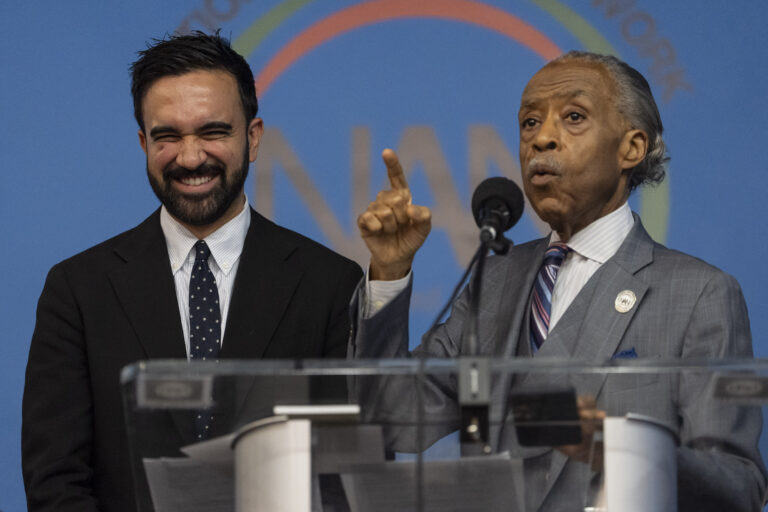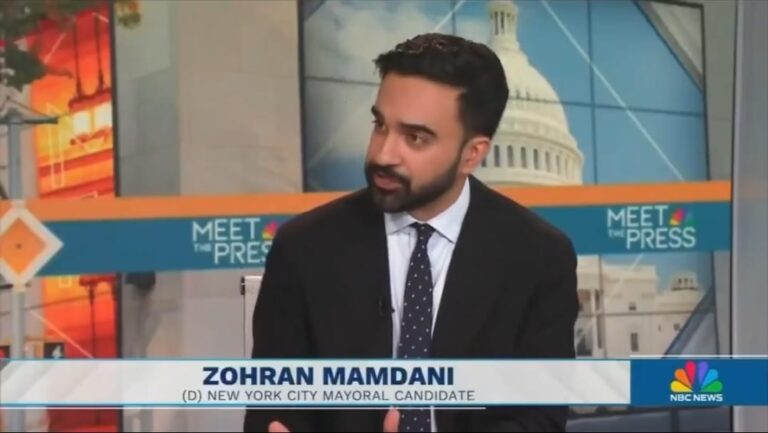 Along with the new Jewish year, of course, we welcomed a new cycle of Torah-readings. For Californians, the Shabbos reading of parshas Beraishis was particularly timely, coming as it did a mere ten days before the 2008 elections. It should have given pause to Jewish opponents of Proposition 8, the measure aimed at amending California’s constitution to enshrine the traditional definition of marriage in state law.
Along with the new Jewish year, of course, we welcomed a new cycle of Torah-readings. For Californians, the Shabbos reading of parshas Beraishis was particularly timely, coming as it did a mere ten days before the 2008 elections. It should have given pause to Jewish opponents of Proposition 8, the measure aimed at amending California’s constitution to enshrine the traditional definition of marriage in state law.
An assortment of arguments can be made in support of Proposition 8 – from the deep and abiding connection of marriage with procreation, to the healthful effects for children of having both a mother and a father, to the endangerment of religious freedom lurking in societal sanction of “non-traditional” unions (which will all too easily be used to tar conscientious objectors as unlawful discriminators).
Such arguments aside, though, Jews with respect for the Jewish mesorah will perceive in the Torah’s first parsha the clear template for marriage: the first man and the first woman. As the text declares: “Therefore shall a man leave his father and mother and cling to his wife [literally ‘his woman’] …” (Beraishis 2:24).
And, in fact, the Torah, both in its written dimension and its oral one goes on to characterize certain unions as “to’eiva,” or vile.
What is more, and here more to the point, societal “officializing” of such unions – i.e. calling them “marriages” – is particularly condemned by unimpeachable and authoritative Jewish sources. They consider a society that “writes marriage documents” for such unions to be endangering its very existence.
A Jewish case can certainly be made for a libertarian approach to matters of personal behavior, for a “live and let live” attitude that, for all its morally objectionable yield, can help ensure the protection of religious and other fundamental freedoms. In any event, the behavioral issue is legally moot; the highest court in the land has declared unconstitutional laws that criminalize certain private acts. But Proposition 8 is not about legislating personal behavior. It is, rather, about preventing a twisting of the time-honored and timeless definition of marriage, a definition whose upholding Chazal considered to be one of humanity’s saving graces.
Jews as a people have a tendency toward “progressive” movements and all too many tend to welcome all societal change as inherently healthy and good. Some such change, of course, is indeed so, and Jews can be rightly proud of having been at the forefront of social causes like racial equality and employees’ rights. But headlong rushes to a “more enlightened future” have landed some Jews in some unsavory places, like the forefront of communism in the early decades of the previous century. Or, centuries earlier, among the Hellenists of ancient Greece. Or even earlier, dancing in celebration of a golden calf.
The Jewish pining for progress comes from a holy place, a deep and inherent desire for a perfected world. But the secret and essence of Judaism is its conviction that we are not the judges of good and bad, but rather look to the Torah for its guidance. “We will do and [then perhaps] hear [i.e. understand],” declared our ancestors when they were given the Torah. Our mission is not to pronounce what we mortals think is good but rather to accept the decisions of the Divine.
Much of the world considers reformulating the meaning of marriage to represent progress. And many Jews, as in past “progressive” movements, are giddily jumping on the burnished bandwagon.
Jews, though, who understand what it means to have been chosen by the Creator to stand for holiness – which the Gemara teaches has a primary meaning of “separation from immorality” – know that all that glistens to a liberal eye is not gold, or even good. And those Judaism-aware Jews who live in California will, against the societal tide, vote on November 4 to have their state retain the true meaning of marriage.
© 2008 AM ECHAD RESOURCES
[Rabbi Shafran is director of public affairs for Agudath Israel of America.]











12 Responses
“But the secret and essence of Judaism is its conviction that we are not the judges of good and bad, but rather look to the Torah for its guidance.”
the problem is that the vast majority of Jews completely believe this to be true
EXCEPT…….
if it is in opposition to their personally held deep convictions, principles, and values.
(which of course have their source in their current environment, the nations.)
It seems two versions of this article exist. The version posted on cross-currents.com does not use the word toeiva, perhaps because it isn’t one. The editor should check to be sure Rabbi Shafran’s words are not being changed improperly.
of course there are two versions. there are many other differences as well.
he is writing to two audiences, apparently you belong more to the audience at cross-currents (where he is forced to explain what the written and oral Torah are)if you are not aware that the Torah explicitly and unconditionally calls this depraved behavior a TOEVA, an abomination, a disgusting, degenerate act, the very antithesis of Holiness, and calls for the death of anyone who commits it.
#2, not sure what u meant by “perhaps it isn’t one”…it most definitely is toeiva!
#2, please tell us how you translate Vayikra (Leviticus) 16:22 and 20:13.
#3- im glad we agree, the act “lying with a man as you do with a woman” (this if for u#5) is a toeiva. Having a relationship with a man is NOT a toeiva. It is ridiculous to not accept that fact that people even in our own yeshiva community have homosexual feelings, that doesn’t mean they commit the toeiva act.
“Having a relationship with a man is NOT a toeiva”
no one said a social relationship with a man is a toeva
“It is ridiculous to not accept that fact that people even in our own yeshiva community have homosexual feelings”
no one is arguing about that.
“that doesn’t mean they commit the toeiva act.”
that’s true
do you have a point to make about this article discussing the legalization of a relationship which involves committing a toeva in the vast majority of cases?
i think that proudjew has a point – some people have this terrrible yetzer hara and that GIVING IN is a toeva
its not legalizing the relationship. The relationship is legal with or without this proposition. All that this prop 8 does is defines marriage as between a man and a woman, who are we to define marriage! If i was asked to vote whether or not a man and a man should be married, id vote no. This however is altering the constitution which is a dangerous move.
i dont know why we are after california? its already “law” in new york, which recognizes these marriages no matter where performed, thanxx to rabbi shafran’s employer’s support!!!
the real question should be, what will happen (legally) soon when rabbonim refuse to perform civil marriage license issues because it is too close to “toeva” issues we all oppose???
#10- no one can be forced to preform a wedding. Any rabbi/minister/priest, etc. can refuse to preform any marriage ceremony for any reason. As an example an orthodox rabbi can refuse to perform an interfaith marriage and not be held legally accountable.
A democratic society relies on the participation of its citizens to direct the course of the state. When frum Jews forfeit their votes, or shy away from expressing disgust or opposition to the agenda of people who hate Torah, frum Jews abscond their responsibility to speak as the moral conscience of the state and give license and power to our enemies. Kudos to Rabbi Shafran for an illuminating and well stated criticism of the limits of “progressivism.” Irresponsible Democrats who support same-sex marriage want to turn the Statue of Liberty into a pornographic avodah zara.